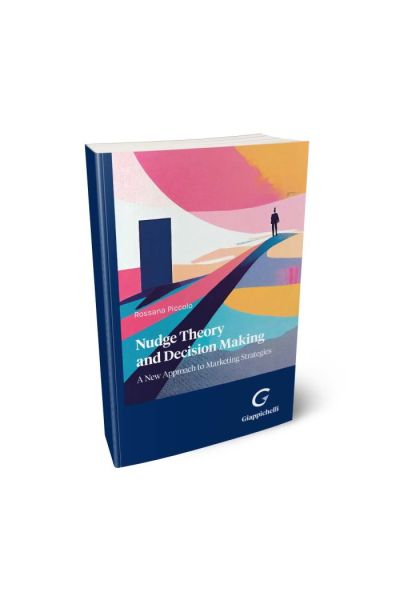NUDGE THEORY AND DECISION MAKING A New Approach to Marketing Strategies

Spesa minima per la spedizione gratuita: 60,00 €
NOTA: Valido solo per spedizioni in Italia
Tipologia Libri
Autore: Piccolo Rossana
Editore GIAPPICHELLI
Pagine 124
Data pubblicazione 12 giu 2024
Argomento: Economia generale
SKU/ISBN: 9791221107999
The book provides a comprehensive analysis of the decision-making process, emphasising its significance in addressing the complexity of the modern world. The interdisciplinary approach adopted encompasses fields such as finance, economics and politics, offering an integrated view of human activities and highlighting their intrinsic connection to individual decision-making. The critical approach to the denial of ‘deviations from perfect rationality’ proposed by neoclassical economics adds depth to the analysis and stimulates the development of new descriptive theories of human decision-making. The analysis commences with the presentation of the fundamental concepts of behavioral economics and the recognition of its role not only as a theoretical approach, but also as a tool for guiding decisions. It focuses on the introduction of nudge theory as an innovative tool to influence individual behavior and guide purchasing decisions. The analysis demonstrates how this theory can be applied to improve companies ‘profits by prioritising buyers’ profit over a focus on welfare alone. The thematic sections, each devoted to a different aspect of the relationship between nudge theory and the business context, provide a clear structure, enriched with references that anchor the text on a solid theoretical basis and make the book a significant contribution to the study of decision-making.
Scrivi la tua recensione


